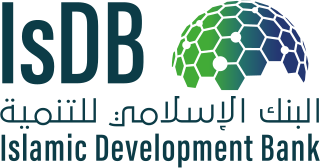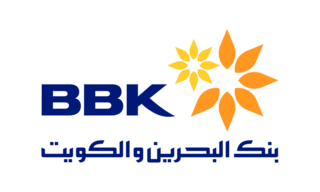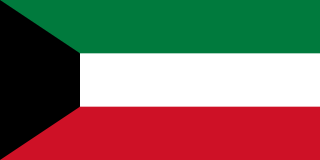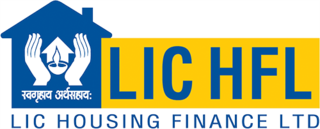
The economy of Saudi Arabia is the largest in the Middle East and the eighteenth-largest in the world. The Saudi economy is highly reliant on its petroleum sector. Oil accounts on average in recent years for approximately 40% of Saudi GDP and 75% of fiscal revenue, with substantial fluctuations depending on oil prices each year.

Saudi Arabia, officially the Kingdom of Saudi Arabia (KSA), is a country in West Asia and the Middle East. It covers the bulk of the Arabian Peninsula and has a land area of about 2150000 km2, making it the fifth-largest country in Asia and the largest in the Middle East. It is bordered by the Red Sea to the west; Jordan, Iraq, and Kuwait to the north; the Persian Gulf, Qatar and the United Arab Emirates to the east; Oman to the southeast; and Yemen to the south. Bahrain is an island country off its east coast. The Gulf of Aqaba in the northwest separates Saudi Arabia from Egypt and Israel. Saudi Arabia is the only country with a coastline along both the Red Sea and the Persian Gulf, and most of its terrain consists of arid desert, lowland, steppe, and mountains. The capital and largest city is Riyadh; the kingdom also hosts Islam's two holiest cities of Mecca and Medina.

The Islamic Development Bank is a multilateral development finance institution that is focused on Islamic finance for infrastructure development and located in Jeddah, Saudi Arabia. There are 57 shareholding member states with the largest single shareholder being Saudi Arabia.
The Arab Hellenic Bank was an internationally owned bank based in Greece.

The Bank of Bahrain and Kuwait (BBK) was established on 16 March 1971 in both the Kingdom of Bahrain and the State of Kuwait. Its shareholders consist of the general public, the government of Bahrain, banks and investment companies in Kuwait. BBK engages in the provision of various services and banking products throughout its branches in Bahrain, Kuwait and India as well as its representative office in Dubai, United Arab Emirates.

Saudi Awwal Bank (SAB) is a Riyadh-based Saudi joint stock company in which global banking group HSBC owns a minority stake. The bank traces its origins to the British Bank of the Middle East which was acquired by HSBC in 1959. In response to restrictions on foreign ownership of banks in Saudi Arabia, Saudi Arab British Bank (SABB) was created in 1978 to manage HSBC branches and assets in the country.

The Al Rajhi Bank is a Saudi Arabian bank and the world's largest Islamic bank by capital based on 2015 data.
Samba Financial Group SJSC, formerly known as The Saudi American Bank, was a multinational banking firm based in Saudi Arabia. The combined institution had 66 branches in the Kingdom.

Saudi Telecommunication Company (Group) (stylized as stc; Arabic: شركة إتصالات السعودية) provides ICT services in the Kingdom of Saudi Arabia, across the Middle East and Europe. The group offers landline and fixed infrastructure, mobile and data services, and broadband & cloud computing services. stc Group also offers online payments, telecommunications, IOT, 5G, e-gaming, cybersecurity, digital entertainment, and fintech.

The economy of the Middle East is very diverse, with national economies ranging from hydrocarbon-exporting rentiers to centralized socialist economies and free-market economies. The region is best known for oil production and export, which significantly impacts the entire region through the wealth it generates and through labor utilization. In recent years, many of the countries in the region have undertaken efforts to diversify their economies.
Saudi National Bank (SNB), also known as SNB AlAhli (Arabic: البنك الأهلي السعودي, formerly known as The National Commercial Bank, is the largest commercial bank in Saudi Arabia.

Kuwait, officially the State of Kuwait, is a country in West Asia. It is situated in the northern edge of Eastern Arabia at the tip of the Persian Gulf, bordering Iraq to the north and Saudi Arabia to the south. Kuwait also shares maritime borders with Iran. Kuwait has a coastal length of approximately 500 km (311 mi). Most of the country's population reside in the urban agglomeration of the capital and largest city Kuwait City. As of 2023, Kuwait has a population of 4.82 million people of which 1.53 million are Kuwaiti citizens while the remaining 3.29 million are foreign nationals from over 100 countries.
Kuwait Finance House (KFH) was established in the State of Kuwait, in 1977, as the first bank operating in accordance with the Islamic Shari'a rulings. KFH is listed in Kuwait Stock Exchange (KSE), with a market capitalization of $8.2 billion as of May 2016. Assets total $55.52 billion and deposits amount to $34.97 billion

Water supply and sanitation in Saudi Arabia is characterized by challenges and achievements. One of the main challenges is water scarcity. In order to overcome water scarcity, substantial investments have been undertaken in seawater desalination, water distribution, sewerage and wastewater treatment. Today about 50% of drinking water comes from desalination, 40% from the mining of non-renewable groundwater and only 10% from surface water in the mountainous southwest of the country. The capital Riyadh, located in the heart of the country, is supplied with desalinated water pumped from the Arabian Gulf over a distance of 467 km. Water is provided almost for free to residential users. Despite improvements, service quality remains poor, for example in terms of continuity of supply. Another challenge is weak institutional capacity and governance, reflecting general characteristics of the public sector in Saudi Arabia. Among the achievements is a significant increases in desalination, and in access to water, the expansion of wastewater treatment, as well as the use of treated effluent for the irrigation of urban green spaces, and for agriculture.

Bank of Khartoum (BOK), is the largest bank in Sudan. With some 111 or more branches, it is also the commercial bank with the oldest continuous history in the country. The largest single shareholder is Dubai Islamic Bank. In 2011 the government of the United States of America lifted its sanctions on Bank of Khartoum. The US Treasury’s Office of Foreign Assets Control posted a notice on its website that it had removed Bank of Khartoum from the blacklist, meaning Bank of Khartoum could seek the return of blocked assets and resume limited dealings with U.S. financial institutions. However, in March 2014, several European and Saudi Arabian banks announced that they would cease transacting with Bank of Sudan.

Pakistan and Saudi Arabia established relations in 1947, when Pakistan and India split. Relations have been historically close and friendly, frequently described by analysts as constituting a special relationship. Pakistan has sometimes been dubbed as "Saudi Arabia's closest Muslim and non-Arab ally." Pakistan has, in line with its pan-Islamic ideology, assumed the role of a guardian of Saudi Arabia against any external or internal threat.

LIC Housing Finance Limited is one of the largest Housing Finance Mortgage loan companies in India having its Registered and Corporate office at Mumbai. LIC HFL is a subsidiary company of LIC.

Gulf International Bank (GIB) was established in 1976 during the first oil boom and is incorporated in the Kingdom of Bahrain as a conventional wholesale bank. It is licensed by the Central Bank of Bahrain and is headquartered in Manama in Bahrain.

Foreign workers in Saudi Arabia, estimated to number about 9 million as of April 2013, began migrating to the country soon after oil was discovered in the late 1930s. Initially, the main influx was composed of Arab and Western technical, professional and administrative personnel, but subsequently substantial numbers came from Southeast Asia.

Saudi Arabia–Palestine relations refers to the bilateral relationship between the Kingdom of Saudi Arabia and the State of Palestine.
















